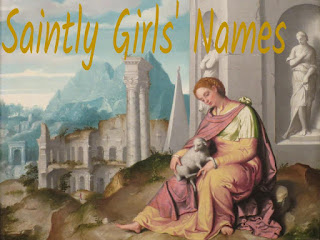The Deal with Popular Names
Popularity, as with durability, is a dividing issue in the realm of first names. There are plenty of articles advising against using popular names, but there are also sources that discourage abandoning a name just because it's "too popular."
Too Popular?
Popularity is a subjective matter regarding names; what's "too popular" for one person might not be so for others. Some parents only seek to avoid the top 10 while for others, it's the top 20, 50, or 100. There are even those who want to escape the top 500 or 1000, or perhaps use a fully unused name.
What parents view as "too popular" is often influenced by their own experiences. For example, those who grew up with popular names tend to prefer more unique choices (especially if they grew up around multiple same-name people). Yet, there are also parents who didn't mind having a common name and those with unique names who want to pass down their experience.
At Patches of Names, I mark the top 100 as the cut-off point for what many people consider "too popular." Of course, I am not against people using top 100 names. If people disagree about our notions of "too popular," we are not to convince them to agree with us (which I've seen too many people do).
Is the SSA data even accurate?
There is also debate about whether the social security administration name data is accurate, especially because it releases near the middle of each year and separates spellings. Some have, hence, argued that the data is already outdated and doesn't list the exact order in which you hear certain names.
I admit the SSA data is not perfect, but that does not make it an unreliable tool. I view the rankings as a signal of how likely a name is to repeat in communities, not an exact order of how often I will hear each name. For example, while Avery is less likely to repeat, I have heard of more Averys than top 10 Mateos. Name popularity varies throughout the nation, too (check out the separate state lists on the SSA website).
What's wrong with popular names?
Sharing a name with someone at school, work, or in the surrounding community definitely has its downsides; those with popular names can easily get confused for others. As stated above, some people don't mind that while others do. Fortunately, some popular names can shorten to unique nicknames. For example, Penelope can become Polly and Theodore to Thor.
Another option for parents wanting to avoid the burdens of popular names but love a name too much is to make a double name. Lucy-Ida and Jack-Harvey would stand out among the Lucys and Jacks their age. Yet, that might make it harder for the child to spell their name.
Unique names entirely remove the burden of being confused for someone else. While Imogen and Phineas would easily stand out in a positive way, the same might not be true for, say, Bertha and Gaylord. This being said, names that sound too "out there" stand out in negative, rather than positive, ways.
If parents don't mind sharing names with others, popular names present little to no problems. Those who don't want their child to share names with too many people can go for a moderately popular name like Ophelia and Colt. Finally, there are parents who want their child to be the only Millicent and Edom in their entire school, or even their school district.
Conclusion
Popular names are not for everybody; how parents view them depends on their experiences. There are those who don't want to pass down the burden of having an overly common name, as well as those who never had issues with it.
Since there is no right way to view popularity, nobody is to judge anyone's ideas as being "wrong."
What do you think about the deal with popular names?




Comments
Post a Comment